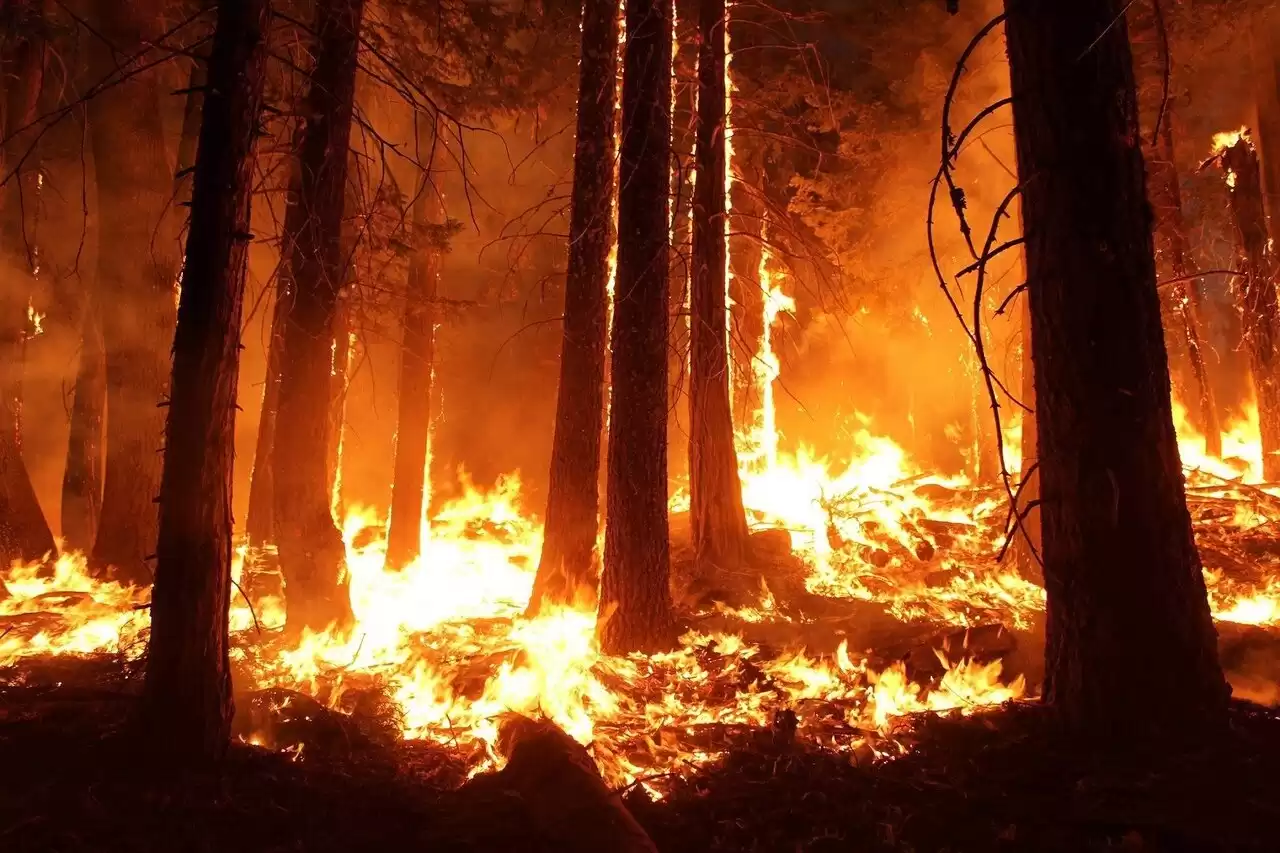Record-breaking wildfires have scorched more than 10 million hectares in Canada this year
Canadian wildfires break record, burning over 10 million hectares this year.
Canadian wildfires this year have reached unprecedented levels, surpassing even the most pessimistic predictions made by scientists. According to government data, these wildfires have burned over 10 million hectares (24.7 million acres), a record-breaking figure that exceeds the previous all-time high of 7.3 million hectares in 1989. What's even more alarming is that this vast area has been burned in just six and a half months, equivalent to the size of Portugal or Iceland.
Since January, there have been a total of 4,088 fires, some of which have scorched hundreds of thousands of hectares. The scale of these fires is immense, with one fire in northern Quebec stretching over 65 kilometers (40 miles), presenting significant organizational challenges for firefighters. In fact, Colonel Philippe Sansa, who leads a detachment of French firefighters assisting in Quebec, mentioned that his team would be able to deploy more resources on a fire 100 times smaller in France.
The impact of these wildfires extends beyond the immediate areas. More than 150,000 people have been displaced, and tragically, a 19-year-old firefighter lost their life. While most of the fires have occurred far from populated areas, they still have severe consequences for the environment. Yan Boulanger, a researcher at Canada's natural resources ministry, expressed his astonishment at the figures this year, stating that they have exceeded their worst-case scenarios.
The situation remains dire, with 906 active fires across the country, including 570 that are out of control. No province has been spared from these devastating fires. The locations of the fires have shifted throughout the months, starting in Alberta, then moving to Nova Scotia and Quebec, and currently taking a dramatic turn in British Columbia. In just three days last week, over 250 fires were ignited in British Columbia, mainly due to lightning strikes.
One of the contributing factors to the severity of these wildfires is the severe drought that many parts of Canada are experiencing. Months of below-average rainfall and warm temperatures have exacerbated the situation. Climate change also plays a significant role, as Canada is warming faster than the rest of the planet due to its geography. Scientists have warned that extreme weather events, such as these wildfires, will become more frequent and intense.
The impact of these wildfires extends beyond immediate destruction. The vast forests in Canada and other northern regions of the planet play a crucial role in maintaining the Earth's health. However, the dense underbrush in these forests means that wildfires release a substantial amount of carbon, contributing to further warming of the planet. This creates a vicious circle, where wildfires contribute to climate change, which in turn increases the likelihood and intensity of future wildfires.
It is clear that urgent action is needed to address the increasing threat of wildfires in Canada and around the world. Measures to mitigate climate change and improve firefighting capabilities are crucial to protect both human lives and the environment.












Comments on Record-breaking wildfires have scorched more than 10 million hectares in Canada this year